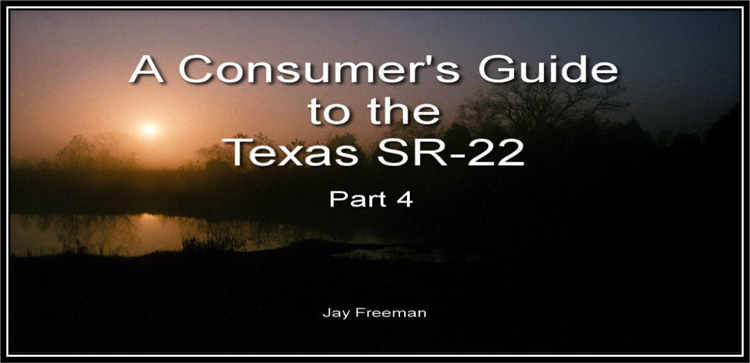- HomeTake me back
- InsuranceSR22, Travel, Gap & More
- About UsWe're here for you!
- Latest NewsPublications
- Contact UsGet started today!
(800) 967-4386


Surprisingly the answer to this question is probably not… unless you tell them about it. You have absolutely no requirement or obligation to notify your insurance company about any changes to your driving record or the need for an SR-22 filing (the exception to this is if you are in an accident and especially if another vehicle is involved; these incidents should always be reported to your agent).
When you first purchased your insurance policy you were required to truthfully complete an application which was reviewed and underwritten by the insurance company; this information in addition to the reports the insurance company obtained on you and the other drivers listed on your policy are the factors that determined the rate you were charged for your insurance coverage. Once your policy is in force, it is the responsibility of the insurance company to determine if there are any new factors that have occurred in the past policy term that might impact the premium you pay for your insurance; and as a matter of doing business, many insurance companies do not normally perform an in-depth underwriting review prior to offering to renew a client’s policy.
Due to the substantial cost of performing these reviews (consider that a driving record cost an insurance company around $10 per insured, then multiply that cost by the number of people insured by that company and I’m sure you can imagine the expense), many companies rely primarily on the policy holder’s claims history to determine premium changes. From the insurance companies point of view… if you have not cost the company any money (by filing claims), they are often happy to renew your policy at the current premium and therefore save the underwriting expense. You might have already experienced this yourself if you have ever received a traffic ticket and expected to see an increase in your insurance premium, only to discover that there was no change at renewal. It often occurs that many convictions and tickets are simply never discovered.
In addition, most insurance companies only take into account the last three years (a very, very few will review up to five years) of a client’s driving record in determining insurance premium. So if a person has a conviction on their record but the insurance company does not bother to check, after three years (in most cases) that conviction will no longer affect the insurance premium.
It is also helpful to understand that you are dealing with two separate entities; your insurance agent who wrote and services your policy, and the insurance company who underwrites your policy and determines the premium you pay. If you are currently insured with a “preferred” carrier, in most cases your insurance agent does not want to know anything about your SR-22 filing. Your agent has probably spent a great deal of effort in developing you as a client and your policies represent a source of your agent’s income; the last thing in the world your agent wants is a situation to arise that threatens your relationship as a customer. I have even been told by insurance company underwriters that they would prefer not to know about an SR-22 filing, however if discovered they normally have no option but to act because under insurance regulations they are required to follow the company’s underwriting guideline.
This all being said, it is important to understand that the information I have shared here is simply a general overview as to how many insurance companies operate. All insurance companies are different and any company may conduct an underwriting review at any time; I am just attempting to explain that it is certainly not a foregone conclusion that a violation, a conviction or the SR-22 filing will ever be discovered.

Here are a few additional points to keep in mind regarding your insurance carrier and the SR-22 filing:
As I explained earlier in this segment, in the vast majority of cases your insurance agent does not want to lose your business. In addition, your agent also does not want you out talking to other agents in the attempt to secure an SR-22; your agent does not want to take the chance that you might be convinced to move your policies. In the final part of this series I will discuss an option for the SR-22 that many agents offer to keep all of your policies under their control, but it could cause more problems than it solves.
Part 1 | Part 2 | Part 3 | Part 4 | Part 5

Jay Freeman is the owner of ConceptSR22.com, a website specialized in solving Texas SR-22 problems. If you need assistance in obtaining a Texas SR-22 or have questions not addressed in this series, please contact his office from the website. Thank you for reading this series..
© Jay Freeman – This article may be copied and distributed with original attribution and permission of author.
Accurate Concept Insurance
972-386-4386 ~ 800-967-4386
Serving Texas since 1993